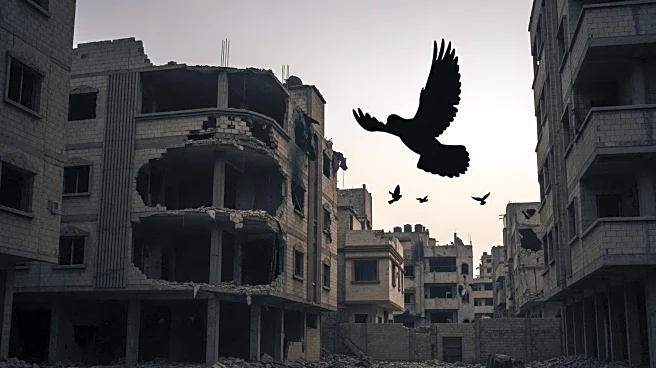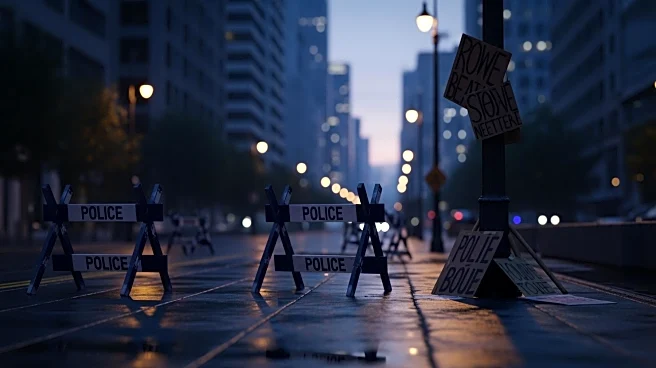What is the story about?
What's Happening?
The ongoing conflict in the Gaza Strip has led to a significant humanitarian crisis, with over a quarter-million Palestinians displaced due to Israeli military actions. As the Israeli army advances, many Gazans are struggling to find shelter, with the cost of renting land for tents becoming prohibitively expensive. The scarcity of tarpaulins and available land has exacerbated the situation, forcing many to sleep in bombarded buildings or makeshift tents. The Israeli ground invasion, initiated on September 16, has intensified the displacement, with Prime Minister Netanyahu framing the operation as essential to defeating Hamas. However, the United Nations has criticized the actions as part of a genocide. Aid groups, including the Norwegian Refugee Council, report difficulties in delivering necessary tents due to Israeli restrictions and security concerns.
Why It's Important?
The displacement crisis in Gaza highlights the severe humanitarian challenges faced by Palestinians amid ongoing military operations. The lack of adequate shelter and skyrocketing rental costs for land are placing immense pressure on displaced families, many of whom have no income. This situation underscores the broader implications of the conflict, affecting regional stability and international relations. The humanitarian needs are vast, with aid groups struggling to meet the demand for basic necessities like tents and sanitation facilities. The crisis also raises ethical concerns about the treatment of civilians in conflict zones and the responsibilities of international actors in providing aid and support.
What's Next?
The situation in Gaza is likely to remain dire as military operations continue. The Israeli government has pledged to provide 100,000 tents, but logistical challenges and security issues may hinder distribution. Aid organizations are expected to continue advocating for increased access and support for displaced populations. International pressure on Israel may increase, with calls for a ceasefire and humanitarian intervention. The displaced Gazans will continue to seek shelter and basic necessities, relying on aid and community support to navigate the crisis.
Beyond the Headlines
The displacement crisis in Gaza has deeper implications for the region's future. The ongoing conflict and humanitarian challenges may lead to long-term shifts in population demographics and exacerbate tensions between Israel and Palestine. The ethical and legal dimensions of the military operations and their impact on civilians are likely to be scrutinized by international bodies. The crisis also highlights the need for sustainable solutions to address the root causes of the conflict and ensure the protection of human rights.














